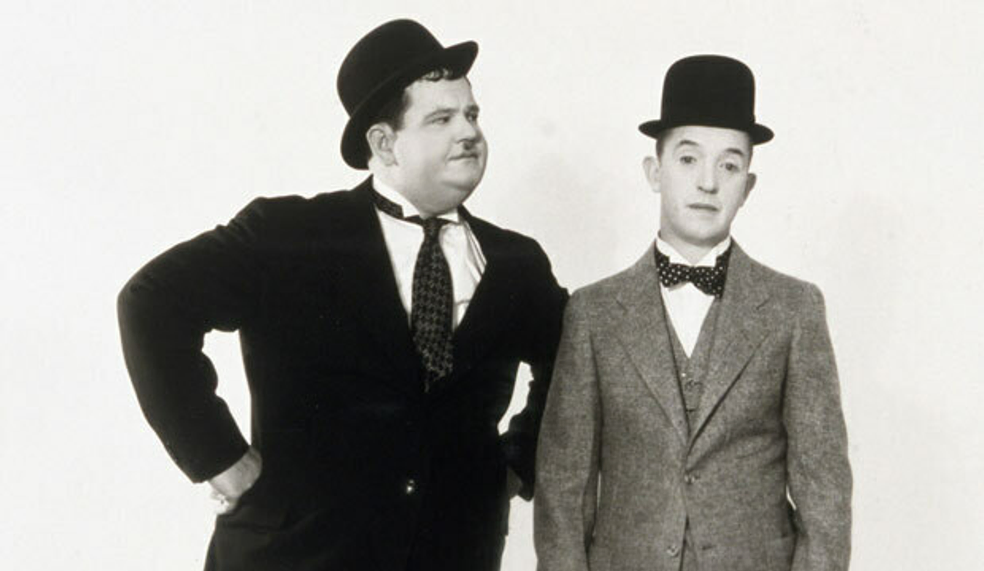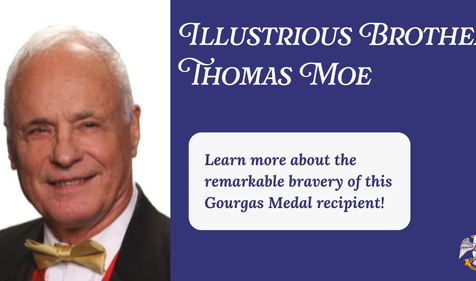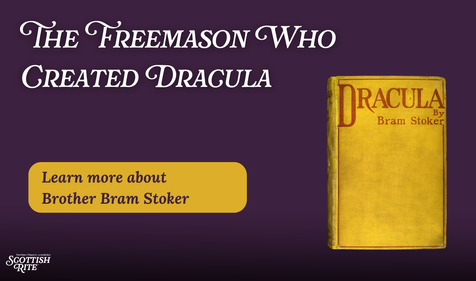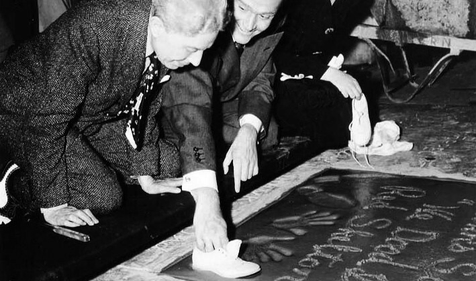This article details the life, career, and Masonic journey of legendary comedian Oliver Hardy.
One of the first comic actors of the silver screen, Oliver Hardy, known familiarly as Ollie or Babe, established a comedic legacy that reverberates to this day. Best known as one half of the comedy duo Laurel and Hardy, he appeared in 107 films, exhibiting the tireless work ethic Freemasons are well known for. His creativity and commitment to his craft have inspired our brethren for over a century.
Childhood and Theatrical Beginnings
Oliver Hardy was born in Harlem, Georgia, on January 18, 1892, and was the youngest of five children. He was named for his father, who passed away less than a year after young Oliver was born. As a boy, he attended Georgia Military College in Milledgeville and later, when he was 13, was sent to Young Harris College in northern Georgia.
Oliver was never an engaged student academically but acquired an early interest in music and theatre. Fortunately, his mother supported his passion and talent for singing and sent him to study music and voice. Hardy immediately set off to make a living through his art, frequently skipping his lessons to sing in the Alcazar Theater for $3.50 a week. In 1910, Hardy returned to Milledgeville to work behind the scenes at The Palace, a local vaudeville house and a movie theater, serving as the venue’s projectionist, ticket taker, janitor, and manager.
During his tenure in Milledgeville, Hardy’s passion for the budding motion picture industry flourished, and he gained an ardent belief that he could do a better job than the actors he saw on screen. At the suggestion of a friend, Oliver moved to Jacksonville, Florida, in an effort to establish himself in some of the films being made there. He moved in 1913 and quickly got involved in singing and acting, working as a cabaret and vaudeville singer at night and at the Lubin Manufacturing Company during the day. While he lived in Jacksonville, Hardy was initiated into Freemasonry as a member of Solomon Lodge No. 20.
A Budding Film Star
A year after moving to Florida, Hardy appeared in his first movie, Outwitting Dad, for the Lubin studio. In his personal life, he was becoming known as "Babe" Hardy, the moniker under which Lubin soon began billing him. Given his stature, standing at over six feet tall, 300 pounds, there were limits on the roles producers were willing to cast him in, and he regularly played “the heavy” or the villain, or comedic roles.
By the end of 1915, he made 50 short films for the Lubin Company. He worked with Charlie Chaplin imitator Billy West and comedic actress Ethel Burton Palmer, regularly acting the "heavy" for West well into the next decade. Over the next couple of years, Hardy worked between New York City and Jacksonville, even directing ten films. With the film industry taking the world by storm, there was only one place for an ambitious, hard-working actor to be, and Oliver Hardy moved to Hollywood in 1917.
Laurel and Hardy
Brother Hardy quickly set to work freelancing for various studios around Hollywood, landing a serendipitous appearance in the movie The Lucky Dog. The film starred a young British comedian named Stan Laurel alongside Hardy. Over the next ten years, they both worked industriously on their own film careers, occasionally overlapping on projects here and there but rarely sharing screen time until the 1927 films Slipping Wives, Duck Soup and With Love and Hisses.
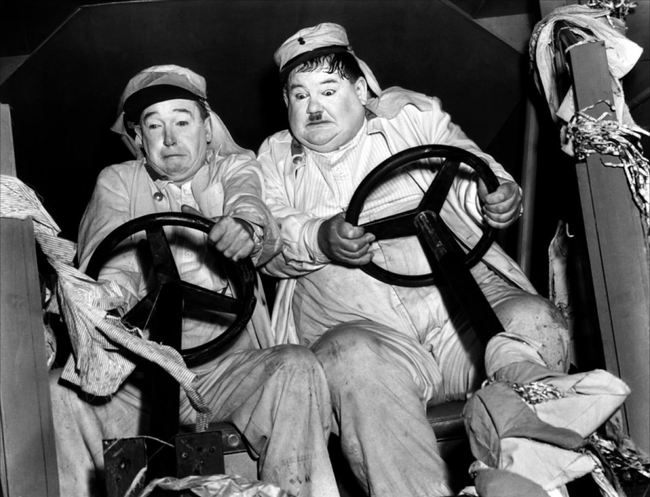
The chemistry between Laurel and Hardy was instantly apparent, with audiences reacting with delight to their work. They immediately began producing a considerable volume of short movies, leaning into their beloved shtick of playing two happy-go-lucky but aloof friends or, as Oliver Hardy would describe it, playing “two minds without a single thought.”
With each short film a smash hit, they soon graduated to feature-length films. In 1932 their film The Music Box won an Academy Award, a reflection of the duo's hard work and brilliance to the entertainment industry.
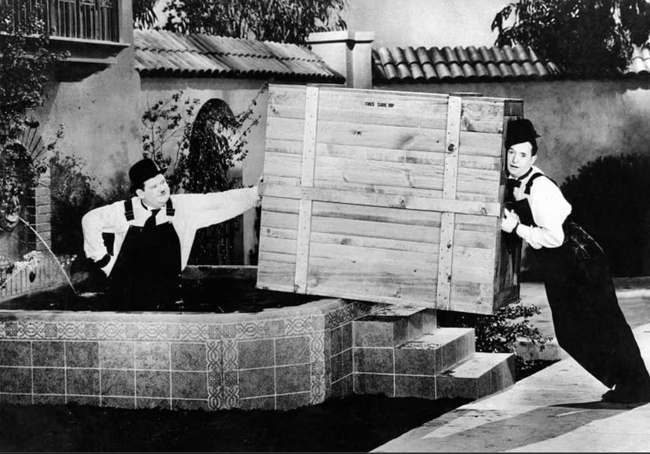
After the United States was drawn into World War II, Laurel and Hardy began performing for the USO, supporting the Allied troops deployed overseas. As the 1940s marched on, they teamed up to make films for 20th Century Fox and later MGM, creating a series of highly successful films, continuing to prove the quality of their work amidst a booming and evolving film industry.
International Renown
In 1947, Laurel and Hardy embarked on a six-week tour of the United Kingdom, highlighting their global popularity. The duo was mobbed wherever they went by fans and completed performances in Scandinavia, Belgium, France, as well as a Royal Command Performance for King George VI and Queen Elizabeth. This was the first of many live appearances the duo would complete in the United Kingdom and France over the years.
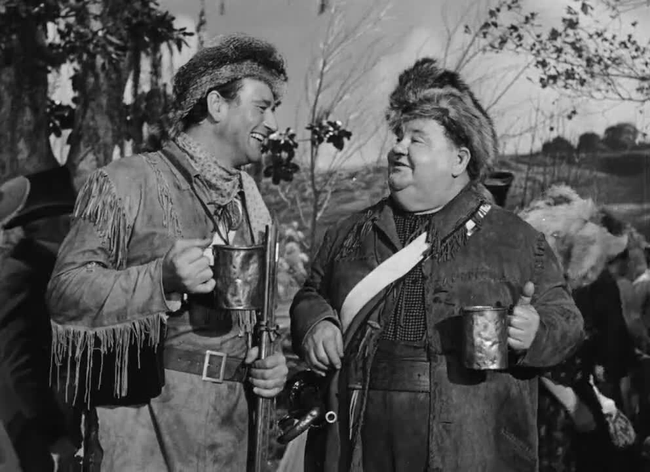
Perhaps the most significant indicator of Hardy's success as a film star came in 1949 when John Wayne asked him to play a supporting role in The Fighting Kentuckian. While Hardy was hesitant to appear alongside one of the world's leading film stars in John Wayne, Laurel pressed him to accept, and Hardy relented.
Death and Legacy
In May 1954, Hardy suffered a mild heart attack and took it as a sign to begin tending to his health. His stature had long contributed to his comedic prowess, but recognizing the dire situation, Hardy quickly lost over 150 pounds, altering his appearance completely. Although he appeared to regain his health after shedding his signature weight, Hardy suffered a major stroke on September 14, 1956. He was left confined to bed and unable to speak for several months, relying on the care of his wife, Lucille. Nearly a year later, Brother Oliver Hardy suffered two more strokes, slipped into a coma, and passed away on August 7, 1957, at age 65.
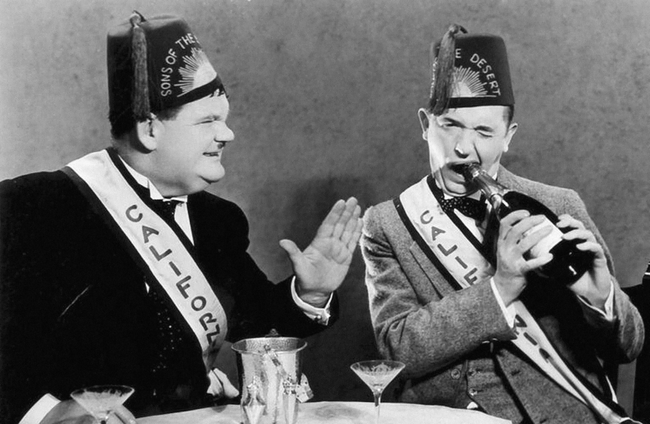
There are few exact details regarding Hardy’s initiation and involvement in Freemasonry over the years. It is known he was a member of Solomon Lodge No. 20 in Jacksonville and that he frequently attended meetings at Hollywood and Mount Olive Lodges in California during his Hollywood career. Some believe his 1933 Sons of the Desert film, in which two men trick their wives to attend a “lodge convention” in Honolulu shows Laurel and Hardy wearing fez hats, is a nod to his Masonic affiliation.
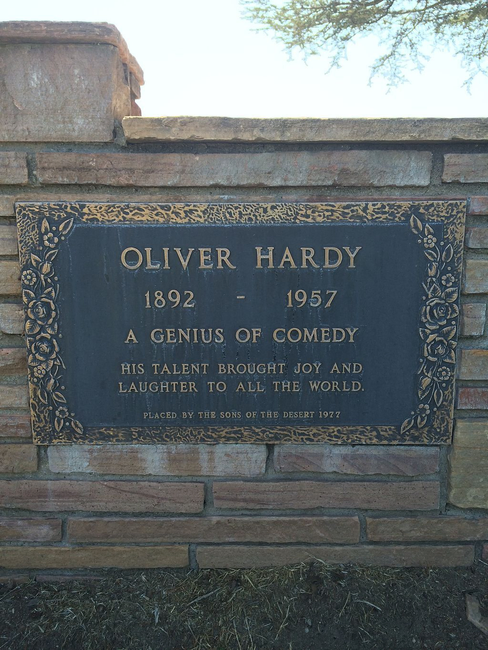
Following his death, Hardy’s ashes were interred in the Masonic Garden of Valhalla Memorial Park Cemetery in North Hollywood, CA.
Together with Stan Laurel, Oliver Hardy introduced an entirely new form of comedy to the world. For his contributions to performing arts, his hometown of Harlem, Georgia maintains a Laurel and Hardy Museum and honors Hardy every October with its Oliver Hardy Festival.
Related Stories
Discover additional Scottish Rite blogs and news on this topic.
-
Illustrious Brother Thomas N. Moe Awarded the Gourgas Medal for Exemplary Service to Freemasonry and Humanity
News
Read More about Illustrious Brother Thomas N. Moe Awarded the Gourgas Medal for Exemplary Service to Freemasonry and Humanity
-
The Freemason Who Created Dracula: The Story of Bram Stoker
History
Read More about The Freemason Who Created Dracula: The Story of Bram Stoker
-
A Funny Remembrance: The Life of Illustrious Brother Red Skelton, 33°
History
Read More about A Funny Remembrance: The Life of Illustrious Brother Red Skelton, 33°
